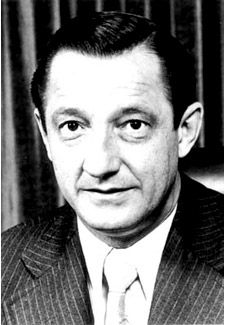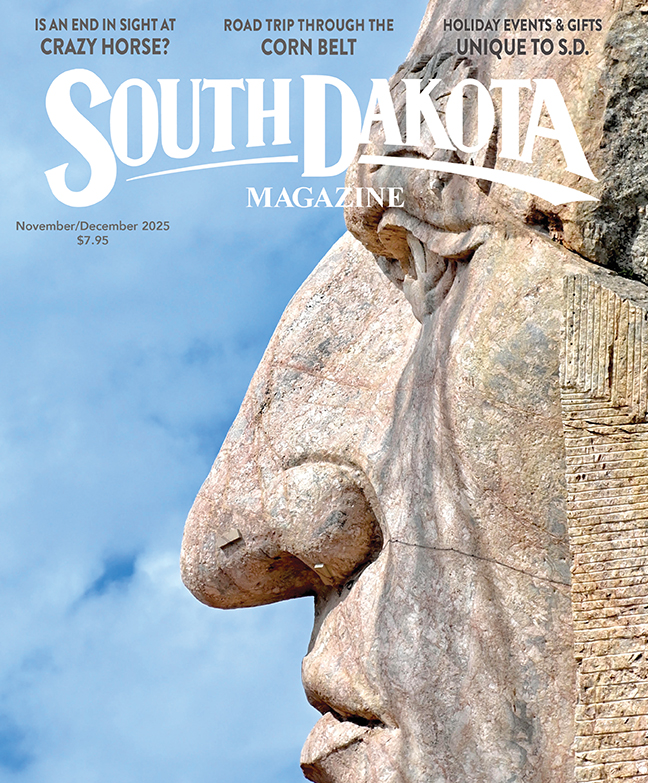The Gift of South Dakota
Subscriptions to South Dakota Magazine make great gifts!
Subscribe today — 1 year (6 issues) is just $29!
What is a Kneip?
Jun 3, 2014
Today South Dakotans vote in primary elections for governor and U.S. Senate. Susan Wismer, of Britton, and Joe Lowe, of Rapid City, are seeking the Democratic nomination for governor. In November, one of them will try to become the first Democratic governor of South Dakota since Richard Kneip served from 1971 to 1978.
When I was studying South Dakota history at the University of South Dakota, I wrote my master’s thesis on Kneip and state politics during the 1970s. That decade under Kneip’s leadership was one of the most important in state history. Gov. Kneip oversaw the complete reorganization of the executive branch, helped create the state’s four-year medical school in Vermillion and dealt with controversies and tragedies such as Wounded Knee, the Rapid City flood and the Oahe Irrigation Project.
Being elected governor is no easy task for Democrats in South Dakota. Since 1889 only three Democrats had served (four if you count Andrew Lee, who won in 1896 as a Fusion candidate, which blended Democrats and Populists) when Kneip announced his plans to run in 1970. Even then, few people might have suspected Kneip, a wholesale dairy equipment dealer from Salem, was cut out to be governor.
He had no political experience at all before 1965, when he won a term in the state senate serving McCook, Hanson and Sanborn counties. His entry into that race came partly because friends told him a Democrat could never get elected in that district. Inspired by John F. Kennedy’s success, Kneip, a fellow Catholic, announced his candidacy and won.
In 1970 Kneip challenged incumbent Gov. Frank Farrar and threw himself completely into the campaign. Because so few people outside his district were familiar with Kneip, his staff created a clever ad campaign that asked, “What is a Kneip?” The answer, of course, was, “the Democratic candidate for governor.” He traveled the state at a breakneck pace, visiting as many Main Street businesses as he could. “I barely have time to smoke a cigarette anymore,” he said two weeks before the election. “I’ve lost 20 pounds since the campaign started.”
Kneip defeated Farrar 55 percent to 45 percent, and began a fairly progressive decade of South Dakota politics. He whittled the state’s executive branch from over 160 departments and boards to 16. He helped transform the University of South Dakota’s two-year medical school into a full, degree-granting four-year institution. In the meantime, kept up with South Dakotans across the state. Ted Muenster, Kneip’s chief of staff, said that sometimes farmers called the governor’s office with questions about a piece of dairy equipment Kneip had sold them, and the governor would talk to them about it.
He also had a fun-loving side. One of Kneip’s more interesting exploits came in 1977 when he participated in Saturday Night Live’s “Anyone Can Host” contest. The show sought brief statements from people explaining why they should host. The governor’s staff drafted a submission that said, “Being host could be my big breakthrough in show biz. Otherwise, it’s probably back to selling automatic milking machines (wholesale) like before I was Governor.”
The show’s producers got a kick out of it, and in November Kneip was one of five people who appeared on the show. Viewers were invited to vote for their favorite potential host. Kneip liked to say he had never lost an election, but 80-year-old Miskel Spillman from New Orleans prevailed.
Kneip resigned in 1978 when President Jimmy Carter named him the U.S. Ambassador to Singapore. He attempted a brief comeback in 1986, but lost in the Democratic primary. He died in March 1987.
Republicans have won every gubernatorial election since Kneip’s resignation. Can Susan Wismer or Joe Lowe break the streak? Only time will tell.










Comments
A Democrat will only take the state backwards into income and wealth inequality like most Democrat-controlled states experience.
I prefer Rep. progressivism that benefits ALL; the poor and people of color cannot afford another Democrat governor.